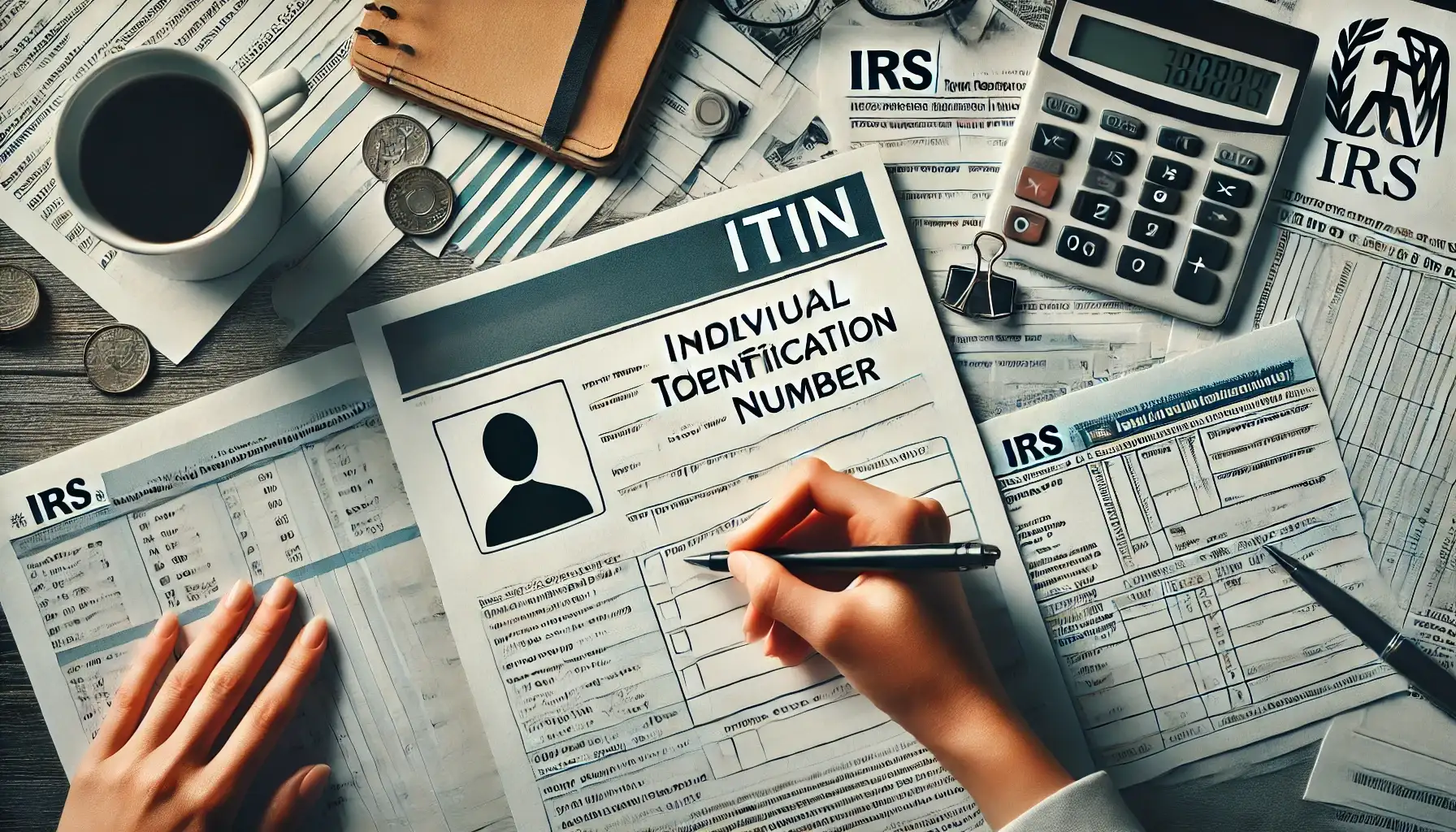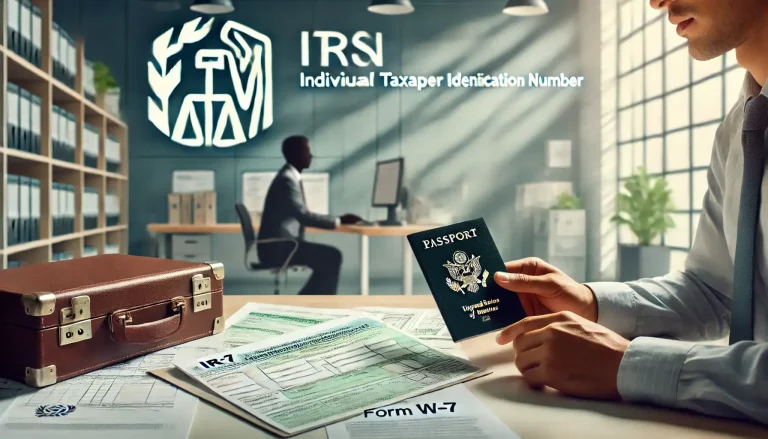Understanding the ITIN: A Complete Guide
Navigating the complexities of tax identification can feel overwhelming, especially when dealing with the Individual Taxpayer Identification Number (ITIN). This unique identifier plays a crucial role for individuals who need to pay taxes but are ineligible for a Social Security Number (SSN). Whether you’re a foreign investor, resident alien, or a dependent with tax obligations, this guide is here to demystify the ITIN. We’ll cover eligibility, the application process, necessary documents, and how the ITIN connects with credit scores and financial services, all while ensuring tax compliance for non-resident aliens.
What is an ITIN and Why is It Important?
The Individual Taxpayer Identification Number (ITIN) is a critical component of the U.S. tax system for individuals who don’t qualify for a Social Security Number (SSN). Issued by the Internal Revenue Service (IRS), the ITIN is used by non-resident aliens, their dependents, and spouses who need a U.S. taxpayer identification number but aren’t eligible for an SSN.
Here’s why an ITIN matters:
- Tax Filing: The ITIN allows those ineligible for an SSN to comply with U.S. tax laws, ensuring everyone contributes fairly to the system, regardless of immigration status.
- Claiming Tax Benefits: ITIN holders can access tax benefits and possibly obtain refunds, even if they aren’t U.S. citizens or resident aliens.
- Financial Inclusion: Holding an ITIN opens doors to financial services like banking and credit, making these services more accessible.
However, an ITIN does not:
- Grant Social Security benefits.
- Change your immigration or employment status.
- Mean that you’re necessarily a resident alien for tax purposes.
Each ITIN begins with the number 9, followed by a seven-digit sequence, making it a critical tool for individuals to comply with U.S. tax laws and access financial systems.
Who Qualifies for an ITIN?
To qualify for the ITIN, you must meet specific eligibility requirements:
- Non-resident aliens required to file a U.S. tax return.
- U.S. resident aliens (based on the substantial presence test) filing a tax return.
- Dependents or spouses of U.S. citizens/resident aliens or non-resident alien visa holders.
Applicants must be ineligible for an SSN and must file a U.S. federal tax return with their ITIN application unless they qualify for an exception. Only those with valid tax filing requirements are eligible for the ITIN, and supporting documentation is required to prove foreign status and identity.

Step-by-Step Guide to Applying for an ITIN
Applying for an ITIN may seem complicated, but by breaking it down into these clear steps, the process becomes more manageable:
- Verify Eligibility: Make sure you are ineligible for an SSN and need an ITIN for federal tax reporting.
- Complete Form W-7: Obtain and fill out IRS Form W-7 accurately, ensuring all information aligns with your official documents.
- Gather Required Documents: Collect documents proving identity and foreign status, such as your passport or a combination of documents like a national ID or birth certificate.
- Include Your Tax Return: Attach your completed U.S. federal tax return unless you qualify for an exception.
- Submit Your Application: You can mail your application to the IRS, visit an IRS walk-in office, or use an IRS-authorized Acceptance Agent.
- Wait for Processing: Processing typically takes up to seven weeks, so be patient.
Following these steps ensures a smooth ITIN application process and reduces the risk of delays or rejections.
Documents Required for ITIN Application
Having the correct documentation is essential when applying for an ITIN. Here’s what you need:
- Proof of Identity: A passport is ideal since it verifies both identity and foreign status. If unavailable, you’ll need two other forms of ID (e.g., U.S. or foreign driver’s license, national ID card).
- Birth Certificate: Required for dependents listed on the tax return.
- U.S. Federal Tax Return: A completed return must accompany your ITIN application.
- Supporting Documents: Documents proving foreign status if a passport isn’t provided.
Ensure all documents are original or certified copies from the issuing agency, and translations are available if in a foreign language.
ITIN Renewal Process
ITINs do expire, so keeping your number current is crucial for continued tax compliance. Here’s what to know about the renewal process:
- Eligibility: ITINs with middle digits 70-88, or those not used on a tax return for three consecutive years, need renewal.
- Submit Early: Start your renewal process as soon as the IRS announces expiration to avoid tax return delays.
- Required Documents: The renewal process mirrors the original application—identity and foreign status documents are needed.
- Form W-7: Complete this form and indicate you are renewing, not applying for a new ITIN.
Renewing your ITIN on time ensures compliance and smooth tax filings.
ITIN vs. SSN vs. EIN: Understanding the Differences
Each taxpayer identification number in the U.S. serves a specific role:
- ITIN: For individuals ineligible for SSNs, such as non-resident aliens.
- SSN: Issued to U.S. citizens and legal residents for employment, benefits, and tax purposes.
- EIN: Used by businesses to report taxes.
Understanding which identification number applies to your situation is essential for tax compliance and financial transactions.
Filing Taxes with an ITIN
If you don’t have an SSN, your ITIN is crucial for filing tax returns. Here’s how to file using your ITIN:
- Compliance: An ITIN allows you to meet U.S. tax obligations.
- Claiming Benefits: ITIN holders can claim tax benefits like the Child Tax Credit.
- Maintain Tax Records: Filing with an ITIN creates a tax record, useful for financial or immigration purposes.
Ensure that your ITIN is correctly entered on all forms and file before the annual deadline.
ITINs and Credit Scores: Opening Financial Doors
Holding an ITIN allows individuals to access critical financial services and build a credit history:
- Credit Building: ITIN holders can establish credit, essential for loans, credit cards, and big purchases like homes.
- Access to Banking: ITINs provide access to financial services such as checking and savings accounts.
- Loan Approval: Lenders can use ITINs to review credit history, leading to better chances of approval and favorable interest rates.
Though ITINs don’t directly impact your credit score, they allow financial activity to be tracked, helping to establish a credit history over time.
Staying Compliant: ITINs for Non-Resident Aliens
For non-resident aliens, an ITIN is vital for staying compliant with U.S. tax laws. ITINs are used to:
- File tax returns.
- Claim tax treaty benefits.
- Report income from U.S. sources.
Keep your ITIN up-to-date and use it correctly on tax documents to avoid penalties or delays.
FAQs About ITINs
What is an ITIN?
An ITIN is a tax processing number issued by the IRS for those who don’t qualify for an SSN but must file U.S. taxes.
Who Needs an ITIN?
Non-resident aliens, U.S. resident aliens, and dependents or spouses of visa holders or U.S. residents who aren’t eligible for an SSN.
How Do You Apply?
Complete IRS Form W-7, submit it with your tax return, and provide documentation proving your identity and foreign status.
Do ITINs Expire?
Yes, after three years of inactivity or for certain middle digits (70-88).







